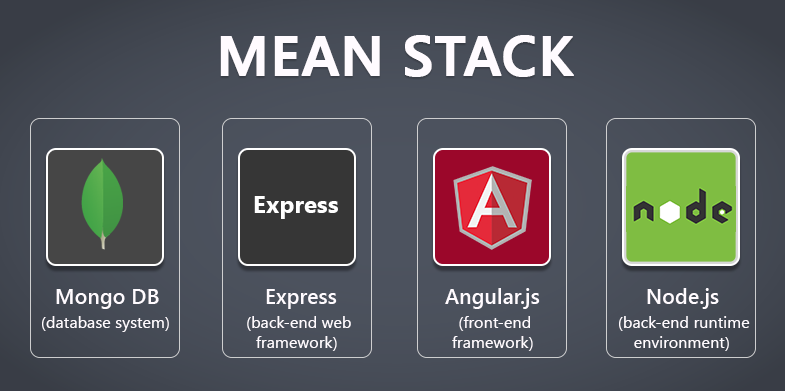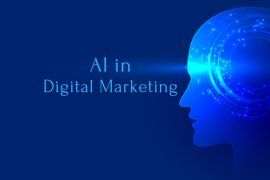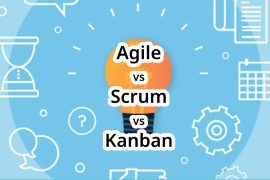MEAN is an acronym for MongoDB, Express, Angular, and Node, the four leading technologies that make the layers of the Stack processes.
MongoDB — MongoDB is an open-source, NoSQL database created for cloud applications that’s a JavaScript-based warehouse for the application’s data. It is highly scalable and excels at managing vast portions of data. Its clarity and easy-to-use language make MongoDB an outstanding programming option for various web and app development aspects. As per a survey by Statista in 2021, 17.9% of users identified MongoDB as one of the most-liked database skills. It was the second most widespread database skill globally after PostgreSQL gained under 18%.
Express(.js) —The second most crucial element in MEAN programming is Express, a web application framework for Node.js. It holds core interactions between the front end and the database, ensuring a smooth data transfer to the end user. Express also avoids app cluttering and features unique error handling and templating processes to improve development. Until 2021, ExpressJS stands second in the list of developers’ most used web frameworks worldwide, after React.js and jQuery. As per a survey, 1 out of 5 respondents utilize Express regularly. It only proves its unique user-friendly functionality in the development process.
Angular(.js) — It has nearly 23% of global respondents; developed by Google, AngularJS is the JavaScript frontend framework. It is as popular as Express(.js). Frontend JavaScript web app developers typically use it by default. Developing the user-facing side of the application is the primary function of Angular in MEAN web development. All three elements – frontend, database, and backend – are constructed on JavaScript, and the development process is hassle-free between all the application parts.
Node(.js) — Node.js is an open-source framework employing nonsynchronous events to process many connections simultaneously. It is a perfect framework for cloud-based app development since there is on-demand scalability and fast data serving. Node.js is supposedly the “backbone” for ExpressJS and combines with AngularJS to enable data serving, which is crucial for cloud solutions; unlike the other single-thread frameworks, Node.js can sustain as many as a million coexisting connections, which is an added benefit.
Table of Contents
What are the Benefits of MEAN Stack Development?

The MEAN Stack is currently the most prevalent technology for building web applications. The MEAN Stack is a JavaScript-based framework used for creating web applications. Some developers have used a variety of technologies for more valuable and quicker outcomes for developing mobile and web apps. The MEAN stack development is an open-source stack for developers, and this offers a fast and systematic way to prototype MEAN-based web apps. With this, you can transform and revise the data layer without migrating. Before appointing a software development company, whether you should go with in-house development or outsourcing, you must know the benefits of Mean Stack development and what you need from the project.
MEAN Stack Development Architecture
MEAN Stack development includes a compilation of technologies for web application development using Javascript.
To make a web application, you need a reliable software stack that delivers useful results. Developers, nowadays, make use of a mix of new technology for more satisfactory results, and MEAN Stack helps significantly in this type of innovation.
One of the best elements of the MEAN stack is the language that is so user-friendly: JavaScript is one language that runs across every code line of the application worldwide. Not only for convenience but also for creating full-stack web and app development more efficiently. To get a more fair idea of each framework’s performance, we furnish a summary of each process below.
Stage 1: Being a client-friendly language, AngularJS is the greatest to start processing consumer demand.
Stage 2: In the current stage, the consumer request goes into the NodeJs server through the JavaScript server-side language.
Stage 3: ExpressJS framework enables the process of performing a database request.
Stage 4: MongoDB recovers the data and delivers the response to ExpressJS.
Stage 5: NodeJS replaces the data with AngularJS to showcase the results, and then the data is taken back from ExpressJS.
Why Choose MEAN Stack Development for your Next Project?
1. Reduction in Development Cost
MEAN JavaScript is an open-source full-stack JavaScript structure that helps you remain open-source and free. MEAN Stack has written technology in it in an open-source programming language, JavaScript. The medium is open-source, so one can download it for free and use it, and compared to the LAMP stack, the MEAN stack needs fewer total developers. There are no license costs for using MEAN Stack development in your projects.
2. Adaptable and Efficient
Once the developers complete the creation of an app, they can quickly start testing on a cloud platform. App development, testing, and installation are much more effortless and efficient with MEAN Stack, and it is more effective than most other systems and has a competitive edge over others. JavaScript is the most widely used language in project development, and it helps the entire team complete the project without hassles.
3. Javascript Based
For the execution of the entire MEAN web development process, developers use JavaScript language. JavaScript supports more than one paradigm and is a high-level language used vastly in data control and recovery. Altogether, it’s developer-friendly and helps the developers by providing quicker backend responses and letting the application develop.
4. Easier Data Transfer
Anybody can learn MEAN stack development fast, whether they are frontend or backend developers. It is simple to learn, grab, and apply during the process of development. JSON files are in a data exchange format that Node.js and Angular use, and with the help of MEAN STACK development services, data transport across the system is also reasonably effortless.
5. Interactive
Real-time apps can provide you with a wide range of users. In any web application, Angular is well-known for its unique User Interface (UI) and User Experience (UX). Many of your favorite brands use Angular.JS, which is widely regarded as the best front-end technology. It also backs the Model-View-Controller architecture, assuring that the user interfaces are high quality.
6. Influential Community
JavaScript has a considerable user base, and developers enable the frameworks. The deprecation of Angular.js in favor of Angular is the most prominent example within their network.
7. Infinite Modules
MEAN Stack can handle an endless number of modules with the help of Node.js. It also provides access to many JavaScript modules that are useful to the users. Developers can write short programs to get specific results because these libraries furnish pre-defined outputs. These libraries are prompt and confirm that the entire code is correct. Generally, libraries save the programmer’s time and increase the software creation rate.
8. Large Talent Pool:
JavaScript, one of the world’s most frequently used programming languages, supplies aid to developers worldwide and helps evaluate development companies. Some specialists worldwide help other medium-stack web developers with their problems, creating a vast talent pool.
9. Brilliant Performance
NodeJS is a critical element of the whole MEAN stack for the development structure, providing high performance. Its high-end outputs may be used to develop interactive web-based applications. NodeJS is easier to learn and understand and offers better outcomes than other programming languages. NodeJS is the most widely used framework for building high-performance server-side solutions and tools. You can also search and find developers who can help you build web applications.
10. Efficient Management
Businesses that use MEAN Stack projects profit from the use of JS. The dynamic teams all speak the same language, and there is no confusion in the team.
Takeaways
MEAN Stack Development
- It is an easy open-source prototype of full-stack development for creating potent and maintainable web and app solutions.
- It is 100% based on JavaScript language – one of the top programming languages accessible and free of charge. Each application tier runs in a single language, which is exceptionally helpful throughout the project development.
- It enables the fast development of various applications.
- It needs a significantly low memory footprint/overhead and features a simplified server layer thanks to Node.js.
- It Helps to evade unnecessary groundwork and doesn’t clutter the application, keeping it fast-paced, organized, and structured.
- It Allows easy processing of multi-thread simultaneous connections and ideally fits cloud-based applications.
- It promotes easy isomorphic coding that simplifies the transference of codes within each MEAN framework and lessens time-consuming and costly code errors.
- It is a versatile stack for mobile and web app development.
Conclusion
For building dynamic, unique, and highly rated online apps, MEAN Stack is the most incredible possible choice of framework. Top mobile and web application development businesses use this modern approach to creating and developing their projects.
Another advantage of the MEAN Stack, which makes it developer-friendly, is the benefit of having JSON. The data transfers between layers evolve smoothly and efficiently when the developers select MongoDB or Angular. MEAN Stack’s isomorphic properties help save a lot of time.






